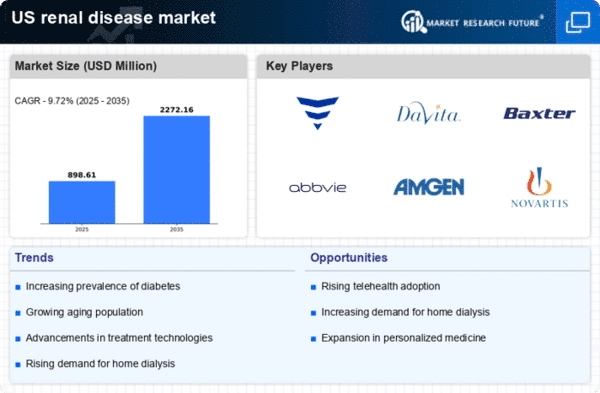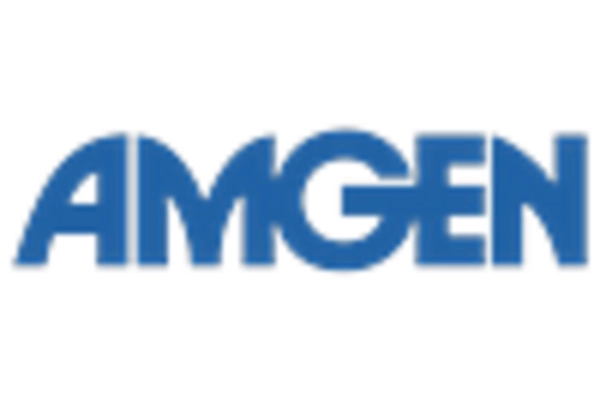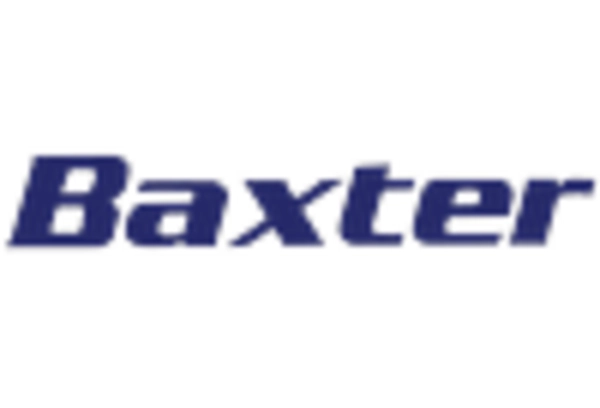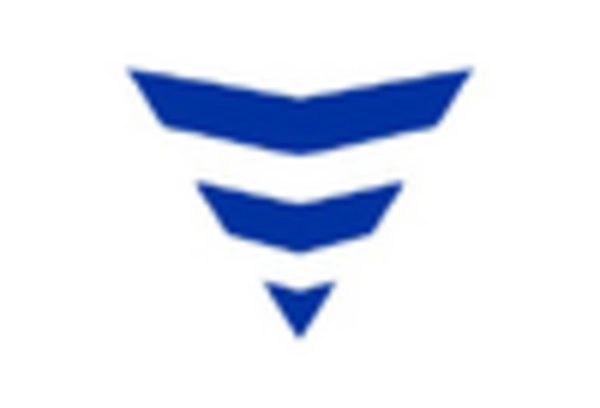Increasing Aging Population
The aging population in the United States is a critical driver of the renal disease market. As individuals age, the risk of developing chronic kidney disease (CKD) escalates significantly. Data indicates that approximately 37 million adults in the U.S. are affected by CKD, with the prevalence increasing among those aged 65 and older. This demographic shift suggests a growing demand for renal care services and treatments, thereby expanding the renal disease market. Furthermore, the aging population is likely to require more advanced therapeutic options, including dialysis and kidney transplants, which could further stimulate market growth. The renal disease market must adapt to these demographic changes by enhancing service delivery and developing innovative treatment modalities to cater to this vulnerable population.
Rising Healthcare Expenditure
Healthcare expenditure in the United States continues to rise, which significantly impacts the renal disease market. In 2023, healthcare spending reached approximately $4.3 trillion, with a notable portion allocated to chronic disease management, including renal diseases. This increase in spending reflects a broader recognition of the importance of managing chronic conditions effectively. As healthcare providers and payers invest more in renal care, the market is likely to see enhanced access to treatments and technologies. Additionally, the focus on value-based care may drive innovations in the renal disease market, as stakeholders seek to improve patient outcomes while managing costs. This financial commitment could lead to the development of new therapies and improved patient management strategies.
Growing Awareness and Education
Growing awareness and education regarding kidney health are pivotal drivers of the renal disease market. Public health campaigns and educational initiatives have increased knowledge about the risk factors and symptoms associated with kidney diseases. This heightened awareness encourages individuals to seek medical advice and undergo regular screenings, which can lead to earlier diagnosis and treatment. In the U.S., organizations dedicated to kidney health are actively promoting education on lifestyle modifications that can prevent renal diseases. As more individuals become informed about kidney health, the demand for renal care services is likely to rise, thereby benefiting the renal disease market. This trend underscores the importance of continuous education in fostering proactive health behaviors.
Advancements in Diagnostic Technologies
Advancements in diagnostic technologies are transforming the renal disease market. Innovative tools such as point-of-care testing and advanced imaging techniques are enhancing the early detection and monitoring of kidney diseases. These technologies enable healthcare providers to identify renal issues at earlier stages, potentially improving patient outcomes. For instance, the introduction of non-invasive biomarkers has shown promise in diagnosing CKD more accurately. As these diagnostic tools become more widely adopted, the renal disease market is likely to experience growth driven by increased screening and early intervention. Moreover, the integration of artificial intelligence in diagnostics may further streamline processes, leading to more efficient patient management and treatment pathways.
Regulatory Support for Innovative Therapies
Regulatory support for innovative therapies is a significant driver of the renal disease market. The U.S. Food and Drug Administration (FDA) has been increasingly focused on expediting the approval process for new renal treatments, including novel drugs and devices. This regulatory environment encourages pharmaceutical companies and biotech firms to invest in research and development for renal diseases. The introduction of breakthrough therapy designations and fast-track approvals has the potential to bring effective treatments to market more rapidly. As a result, the renal disease market may witness an influx of innovative therapies that address unmet medical needs, ultimately improving patient care and outcomes.
















